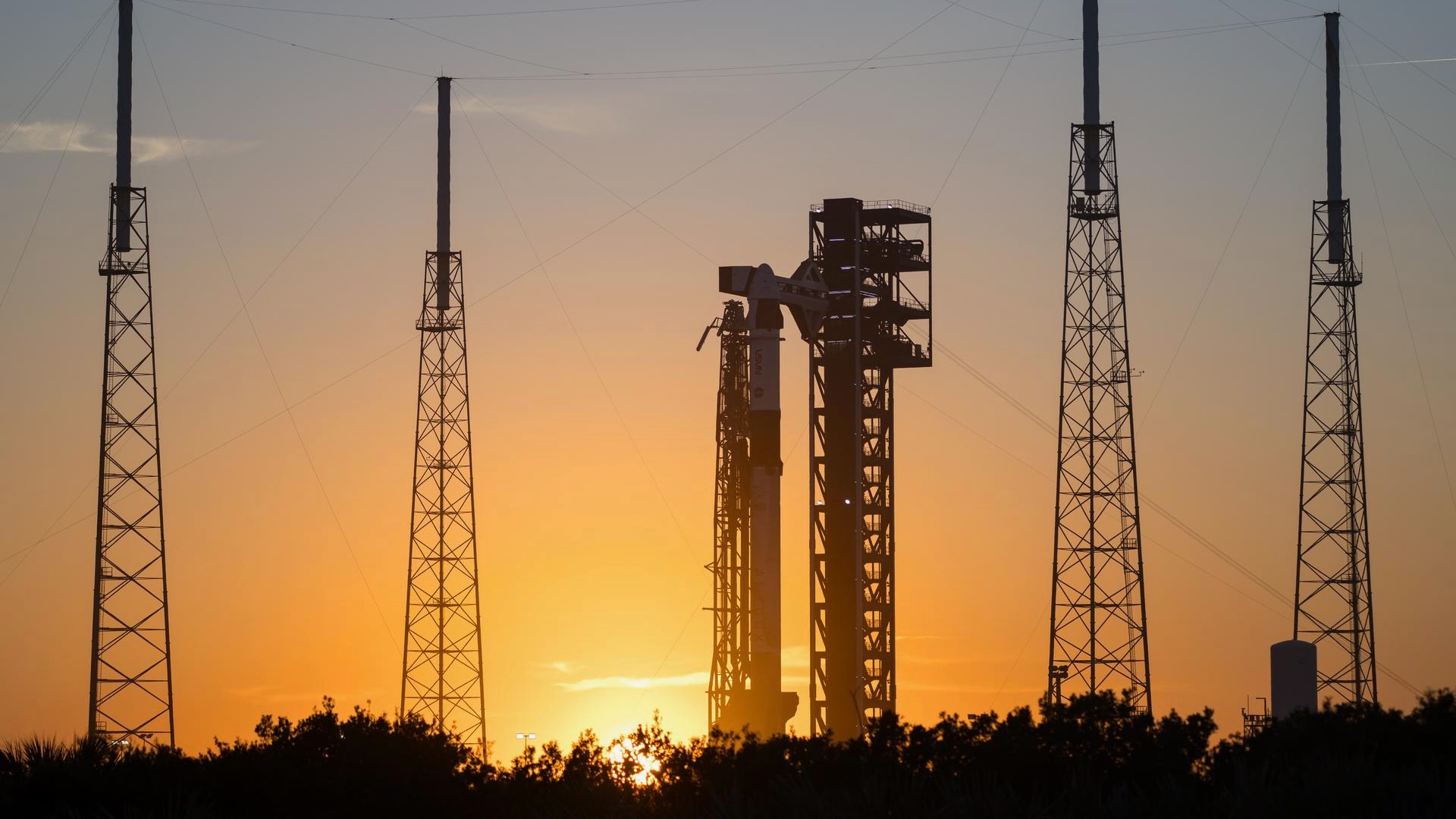China Unveils Ambitious Space Plans at National Space Symposium
Breaking space news, the latest updates on rocket launches, skywatching events and more!
You are now subscribed
Your newsletter sign-up was successful
Want to add more newsletters?

Delivered daily
Daily Newsletter
Breaking space news, the latest updates on rocket launches, skywatching events and more!

Once a month
Watch This Space
Sign up to our monthly entertainment newsletter to keep up with all our coverage of the latest sci-fi and space movies, tv shows, games and books.

Once a week
Night Sky This Week
Discover this week's must-see night sky events, moon phases, and stunning astrophotos. Sign up for our skywatching newsletter and explore the universe with us!

Twice a month
Strange New Words
Space.com's Sci-Fi Reader's Club. Read a sci-fi short story every month and join a virtual community of fellow science fiction fans!
COLORADO SPRINGS, Colo. - China is celebrating its 50th anniversary of space progress this year, but alsolaying out a sweeping plan for lofting Earth orbiting satellites for amultitude of duties, expanding its human spaceflight abilities, and carryingout a multi-step program of lunar exploration.
Luo Ge,Vice Administrator, China National Space Administration, spoke here today atthe 22nd National Space Symposium (NSS).
"Generallyspeaking, in the coming five to eight years we will be launching about 100satellites," Luo told a standing room only audience here. Space technology ismaking its contribution to the economic and social development in China, he said.
Luooutlined an expansive roster of satellite projects, building upon 5 differentoperational systems already in service: telecommunications, meteorological,Earth remote sensing, as well as recoverable satellites and technologydemonstration spacecraft.
Over theyears, Luo explained, China has developed a series of 12 launch vehicles tosatisfy different demands. Access to space is a priority, he said, with worknow underway on a new generation booster-- a non-toxic, non-pollution and highlyreliable launch vehicle, he said, able to toss 25 metric tons into low Earthorbit and 15 metric tons into geostationary orbit.
"We haveachieved all technical breakthroughs ... by the year 2011 we'll be launching thefirst launch vehicle," Luo said.
Historicbreakthrough
Breaking space news, the latest updates on rocket launches, skywatching events and more!
In thehuman spaceflight arena, China has also made stunning achievements, Luoexplained. In 1999-2002, four unpiloted spaceships were launched by China, followed in October 2003 by its firstpiloted mission, Shenzhou 5. "That was a historic breakthrough for China," he added.
"We havebecome the third country capable of developing a spaceship by itself andlaunching our own astronauts into orbit and safely recover them," Luo said. InOctober 2005 a two-personspacecraft rocketed into Earth orbit, achieving the first "attended spacelab tests," he said.
Luo saidthat, based on success in the manned mission area, they intend to establish anorbiting space lab by 2015. Leading up to this effort, he added, space walkingskills by Chinese astronauts are to be honed, as will be the ability of spacedocking.
In the areaof human spaceflight, Luo noted several times that China is open to thepossibility for international cooperation.
Lunarrobotic plans
China has drafted a multi-step programfor lunar exploration.
Next year,the country's first lunar orbiter/fly mission is to fly, Luo said. By 2012, China space planners will be landing a rover on the Moon surface. In 2017, that country'slunar exploration plans call for robotic lunar sample return missions.
"We callthese three stages the first step of our lunar exploration," Luo explained. "Thefirst step will be done purely robotically ... with unmanned missions."
And in thefuture, Luo stated, "China will also consider the possibility of manned missionto the Moon."
But by far themost extensive element of China's space plans is within the arena of Earthorbiting satellites - from oceanographic, navigation, and telecommunicationssatellite systems to constellations of Earth observing and disaster mitigationspacecraft - Luo outlined an impressive cadre of upcoming missions.Furthermore, in-space testing of high-tech components is also slated.
China's focus, Luo emphasized, is onconversion of space technology to a variety of applications to further thesocial and economic development of the nation. Commercialization of spaceproducts is also a priority.
In terms ofpartnerships, China is working with the European SpaceAgency, Brazil, Russia, as well as a number of Asian-Pacific countries, Luosaid. While moving forward on their national efforts, China is also counting on extensive international cooperation, he said.
Eye-opener
China's ambitious space program wasclearly an eye-opener at the NSS gathering.
"Man oh man... they're not kidding around," said one NSS attendee after hearing Luo's reviewof China's past and future space intentions
"I don'tregard it as a threat...I regard it as a challenge," said former Congressman andNational Space Symposium leader, Robert Walker, in an earlier interview with SPACE.com."I think the Chinese have a very ambitious space program ... that they are doingfor reasons of national prestige."

Leonard David is an award-winning space journalist who has been reporting on space activities for more than 50 years. Currently writing as Space.com's Space Insider Columnist among his other projects, Leonard has authored numerous books on space exploration, Mars missions and more, with his latest being "Moon Rush: The New Space Race" published in 2019 by National Geographic. He also wrote "Mars: Our Future on the Red Planet" released in 2016 by National Geographic. Leonard has served as a correspondent for SpaceNews, Scientific American and Aerospace America for the AIAA. He has received many awards, including the first Ordway Award for Sustained Excellence in Spaceflight History in 2015 at the AAS Wernher von Braun Memorial Symposium. You can find out Leonard's latest project at his website and on Twitter.
